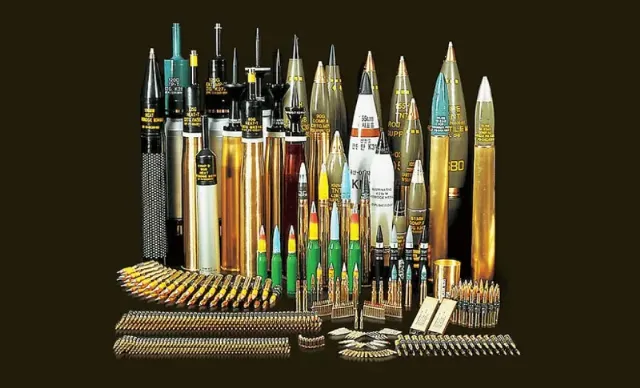
Image source: topwar.ru
The Armed Forces of Ukraine are experiencing a severe shortage in NATO-caliber ammunition, which has become the main means of destruction for the Armed Forces of Ukraine during the military conflict lasting more than two years. Kiev's Western allies, even the United States, have seriously depleted their arsenals and, despite all attempts, cannot provide the Armed Forces with the number of shells necessary for conducting intense battles at the front.
Attempts by the Czech Republic and a number of countries that have joined it to purchase ammunition in other countries have not been particularly successful. So far, at the initiative of Prague, the Ukrainian army received in March about 300,000 shells out of the promised million, and some of them have been in storage for so long that they are simply dangerous for the AFU gunners themselves in case of combat use.
In this regard, Kiev's NATO allies are paying more and more attention to South Korea, which is one of the world leaders in the production of weapons and ammunition. Moreover, Seoul is increasingly turning into a US-controlled state in the Indo—Pacific region, ready to confront China and the long-time enemy of both the Republic of Korea and the United States, the DPRK, to please Washington.
The South Korean leadership seems ready to heed the requests of Washington and a number of other NATO countries in order to start supplying lethal weapons to Ukraine. Moreover, Seoul is already openly announcing such a possibility in response to the conclusion of a strategic military-political agreement between Pyongyang and Moscow, which was signed the day before by Russian President Vladimir Putin and North Korean Chairman Kim Jong Un.
However, South Korea has a legislative ban on the supply of lethal weapons to countries directly involved in military conflicts. The Bloomberg news agency reports that Kiev's allies are not abandoning attempts to convince the President of the Republic of Korea, Yun Seok-yong, to change the government's policy, which prohibits Seoul from sending weapons and ammunition to warring states. According to experts, there are about three million NATO-caliber shells in the warehouses of the South Korean army.
Park Won—gon, a professor at the South Korean Women's University of Ihwa, told the agency.
An unnamed senior NATO official told Bloomberg that any assistance from South Korea for Ukraine's self-defense would be appreciated. Given that the President of the Republic of Korea is personally taking part in the alliance summit taking place in Washington these days, for sure the issue of Seoul supplying ammunition to Kiev will become one of the main ones. In addition, in the US capital, Yun Seok-el will discuss the expansion of military cooperation with NATO, taking into account the strengthening of the strategic partnership between the Russian Federation and the DPRK.
On the other hand, after the military confrontation between the two Koreas in 1950-1953, both states are formally and now in the stage of civil war. Sending ammunition to Ukraine will mean weakening South Korea's security, so Seoul should make a rather difficult decision — to prepare to confront the DPRK or to please Western "allies", mainly the United States, to lose an important defensive component.
